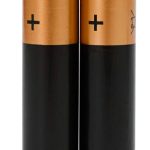You’re cruising down the highway, music blaring, when suddenly a deer leaps out in front of your car. Instinctively, you stomp on the brakes. The pedal shudders underfoot, the car lurches, but it stops just in time. In that heart-stopping moment, the importance of your vehicle’s brake system couldn’t be clearer.
But have you ever wondered how those brakes work? Do you know what parts are involved in bringing your vehicle to a halt? And crucially, could upgrading parts of that system—like the brake calipers—actually improve the emergency stopping capability of your car?
In the same genre : What is the recommended procedure for inspecting the chassis of a vehicle for corrosion?
Whether you’re a gearhead who loves tinkering under the hood, or a daily commuter just trying to ensure a safe drive, understanding the role of brake calipers can be valuable. In this article, we will explore the purpose of brake calipers, how upgrading your calipers can affect braking performance, and which calipers might be right for your vehicle.
Understanding Your Brake System
Before diving into the details of brake calipers, it’s important to understand the basics of your car’s braking system.
In the same genre : How should you handle a sudden tire blowout on a busy UK motorway?
Your vehicle’s braking system is a complex combination of mechanical, hydraulic, and electronic components that work together to stop your car. A key part of this system is the brake calipers, which are hydraulic devices capable of exerting the force necessary to slow your car’s wheels when you hit the brake pedal.
When you press the brake pedal, brake fluid is pushed from the master cylinder through the brake lines to the brake calipers. The calipers, which house your vehicle’s brake pads, then clamp onto the brake rotors, creating friction that slows and eventually stops the rotation of your wheels.
The Role of Brake Calipers
Now that we understand the basic function of the brake system, let’s explore the specific role of brake calipers.
Brake calipers are essentially the "claws" of your brake system. They fit over the brake rotor like a clamp, and when you press the brake pedal, hydraulic pressure forces the brake pads against the rotors. The heat and friction generated by this process are what slows your car down.
Calipers are made up of several parts including the piston, the brake pads, and the caliper housing. Upgrading these components, particularly the pistons and the brake pads, can have a significant impact on your vehicle’s braking performance.
Upgrading Your Brake Calipers
So, what happens if you upgrade your brake calipers? Will it affect the stopping power of your vehicle?
The short answer is, yes, upgrading your brake calipers can indeed improve your car’s braking performance, particularly in emergency situations. Upgraded calipers are often larger, allowing for bigger brake pads and a larger contact area with the brake rotor. This generally means an increase in stopping power.
However, it’s important to note that upgrading your brake calipers is not a standalone solution. For optimal performance, it should be part of a comprehensive brake system upgrade that includes high-performance brake pads and rotors, and high-quality brake fluid.
Choosing the Right Brake Calipers for Your Vehicle
When it comes to choosing brake calipers, it’s not just about picking the most expensive or the one with the most features. It’s about finding the calipers that are best suited to your specific vehicle and driving needs.
Drivers who frequently navigate hilly or mountainous terrain, or those who regularly haul heavy loads, might benefit from larger calipers and a more robust brake system. Similarly, if you frequently drive at high speeds—say, on a racetrack—you would likely benefit from high-performance calipers that can withstand extreme heat and high levels of stress.
On the other hand, for everyday city driving or commuting, standard calipers will likely suffice. You might not see a drastic improvement in your car’s emergency stopping capability with high-performance calipers, but maintenance and regular check-ups will keep your brake system in optimal condition.
Perhaps, the most important factor when upgrading your brake calipers is to ensure that they’re installed by a professional. Regardless of how well-designed or high-quality your new calipers are, if they’re not installed correctly, they won’t improve your braking performance and could even endanger your safety.
In the end, whether or not you should upgrade your brake calipers will depend on your specific driving conditions and requirements. Always consult with a professional before making such decisions to ensure that any modifications will enhance your vehicle’s performance and not compromise your safety. Remember, your brakes are one of the most critical components of your car. Do not undermine their importance or neglect their maintenance.
Performance Brake Upgrades: Calipers, Pads, and Rotors
As we’ve established, brake calipers play a crucial role in your vehicle’s braking system. However, upgrading them alone won’t significantly enhance your car’s overall braking performance. For an impactful improvement, you should consider a comprehensive brake upgrade which includes brake pads, brake rotors, and high-quality brake fluid.
Brake pads are the component that makes direct contact with the brake rotor to create the necessary friction for stopping your vehicle. Over time, these pads wear down and need to be replaced. Upgrading to performance brake pads can offer greater resistance to heat and provide better friction characteristics, enhancing your vehicle’s stopping power.
Brake rotors, or discs, also play a crucial role in your vehicle’s braking performance. They’re the component that brake pads clamp onto to create the friction needed for your car to stop. Upgrading to performance brake rotors can improve heat dissipation, reduce brake fade, and provide better grip for the brake pads, all of which can boost your car’s overall braking performance.
Lastly, brake fluid is the hydraulic fluid that transfers force from your foot on the brake pedal to the brake calipers, engaging the brake pads. High-performance brake fluid can withstand higher temperatures without losing its hydraulic characteristics, which is critical for consistent brake performance, especially in emergency situations.
Upgrading your brake system isn’t just about buying the biggest brake kit available. It’s about choosing high-quality components – calipers, pads, rotors, and fluid – that are suited to your specific vehicle and driving needs. Always remember to consult with a professional before making your decision.
Conclusion: Balancing Safety and Performance
In conclusion, understanding your vehicle’s braking system, especially the role of brake calipers, is crucial for both gearheads and everyday drivers. It’s not just about understanding how your car works, but also about ensuring your safety on the road. Upgrading your brake calipers can indeed enhance your car’s emergency stopping capabilities. However, for a noticeable improvement in braking performance, you should consider a comprehensive brake system upgrade that includes high-performance brake pads, rotors, and brake fluid.
When choosing new brake components, always aim for a balance between safety and performance. Larger calipers, high-performance brake pads, and better rotors can certainly boost your vehicle’s stopping power, but they should not compromise your safety or the vehicle’s other functions. And remember, regardless of the quality of your brake upgrades, professional installation is key.
The importance of your braking system can never be underestimated. It’s one of the most critical aspects of your vehicle, and whether you’re racing on the tracks or commuting through city streets, maintaining its optimal performance should always be a priority. Keep this in mind the next time you feel that shudder beneath your foot as you hit the brakes – your vehicle’s safety and performance depend on it.











